UBS repositions itself after Q2 loss
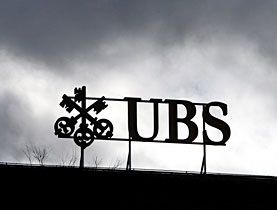
Embattled Swiss bank UBS has announced it is going to separate its business into three autonomous units after identifying weaknesses in its one-bank strategy.
The move on Tuesday came as Switzerland’s largest bank reported a second-quarter loss of SFr358 million ($328.3 million), slightly worse than analysts had expected.
The loss compares with a SFr5.5 billion profit a year earlier and was cushioned by SFr3.8 billion in tax credits.
The bank also reported heavy fund outflows of SFr17.3 billion in its wealth management business. Global asset management had net outflows of SFr24.5 billion.
UBS is to separate its wealth management business from investment banking.
In a statement, UBS said the repositioning of the bank would allow “maximum strategic flexibility” in its future development.
UBS is Europe’s hardest hit victim of the credit crisis with the bank going through the worst crisis in its history.
The exodus of rich customers and UBS fund clients was described by analyst Dirk Becker at Landsbanki Kepler as the “worst that could have happened”.
Writedowns
As demand for risky mortgages in the United States and other debt dried up, the bank has been forced to write down billions of francs in the value of its investments.
It reported a writedown of an additional $5.1 billion in assets related to the US residential real estate mortgage market in the second-quarter figures, bringing the total to about $42 billion.
UBS has also had to defend its conduct throughout the crisis.
Last week, it agreed to buy back almost $19 billion of bonds after New York State and others sued it for steering clients towards auction-rate securities – debt that became impossible to sell after the market froze. UBS said this could cost it $900 million.
It has also been the target of US congressional investigators, who claim the bank helped US clients evade taxes.
“Our review has clearly revealed the weaknesses associated with the integrated
‘one firm’ business model. Some of these weaknesses – such as the blurring of
the true risk-reward-profile of individual businesses – are the source of substantial risk, as we have seen in the past few months,” commented UBS chairman Peter Kurer in a statement.
“Transparency”
He added that other weaknesses had led to “unnecessary layers of complexity”.
“The new structure will create a spirit of transformation, clear accountability and transparency, and will allow us to optimize funding and capital usage.”
CEO Marcel Rohner said much had already been done to reposition UBS’s investment bank.
“We have substantially reduced our risk exposures, balance sheet, costs and personnel, made changes in our group governance model and initiated remediation measures. I am determined to make the management of UBS more effective,” he argued.
The Federal Banking Commission welcomed the separation of business units at UBS, saying the changes would contribute towards stabilising the bank.
Analyst Becker commented: “This could be read as a first sign that the bank will ultimately be split between a wealth management and an investment banking unit, a sharp about-turn from all previous management communication.”
Tobias Brütsch at Vontobel said that overall UBS had reported a negative set of figures. “There are too many signs to worry. It will take more time to stabilise than expected.”
However, in its outlook, the bank was less than optimistic. It said it did not expect an improvement in current adverse economic and financial market trends.
Cutting costs
UBS added it would continue its programme to reduce staff, costs and risks.
In a related development, the bank also announced it was revamping its management, with finance chief Marco Suter stepping down to be replaced by John Cryan.
It added that it was also proposing four new candidates – Sally Bott, Rainer-Marc Frey, Bruno Gehrig and William Parrett – for election to its board of directors at an emergency general meeting in October.
Switzerland’s second-largest bank, Credit Suisse, last month reported that it made a net profit of SFr 1.22 billion in the second quarter, compared with net income of SFr3.19 billion during the same period last year.
swissinfo with agencies
UBS endured a tough 2007 and has spent the first half of 2008 in no better shape as a result of the US subprime mortgage crisis.
In July 2007, chief executive Peter Wuffli stepped down following the collapse of the bank’s hedge fund Dillon Read Capital Management.
In October 2007, UBS said it would cut 1,500 jobs in its investment banking arm, including that of its head Huw Jenkins. Chief financial officer, Clive Standish, left at the same time.
UBS has written down some $37 billion as a result of the subprime mortgage market collapse. Chairman Marcel Ospel stepped down in April.
The bank was then investigated for allegedly helping US citizens evade taxes, following a confession from a former employee. The case led to UBS stating it would stop offshore banking activities in the US.
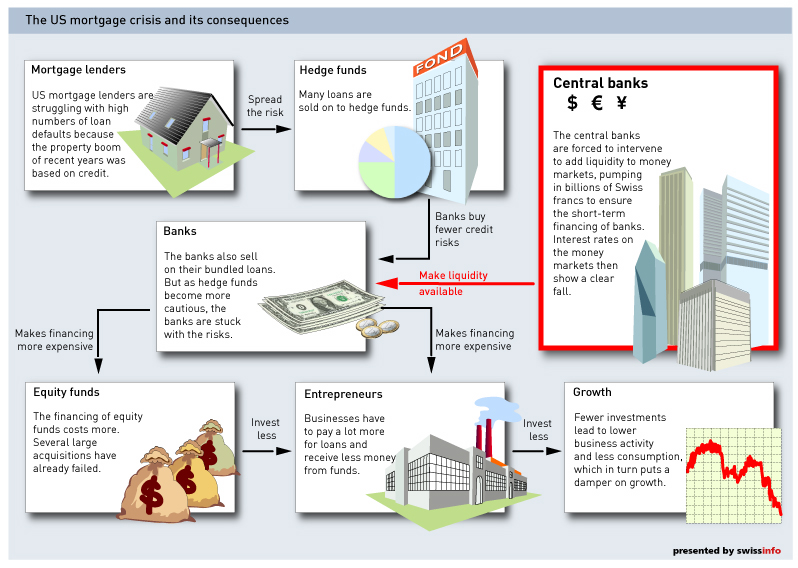

In compliance with the JTI standards
More: SWI swissinfo.ch certified by the Journalism Trust Initiative
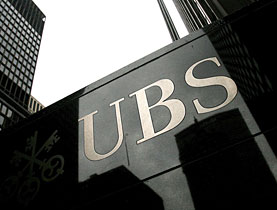
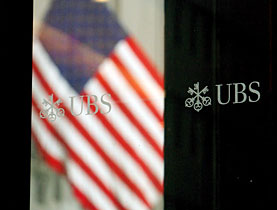
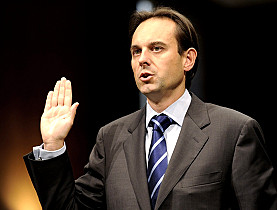
You can find an overview of ongoing debates with our journalists here. Please join us!
If you want to start a conversation about a topic raised in this article or want to report factual errors, email us at english@swissinfo.ch.